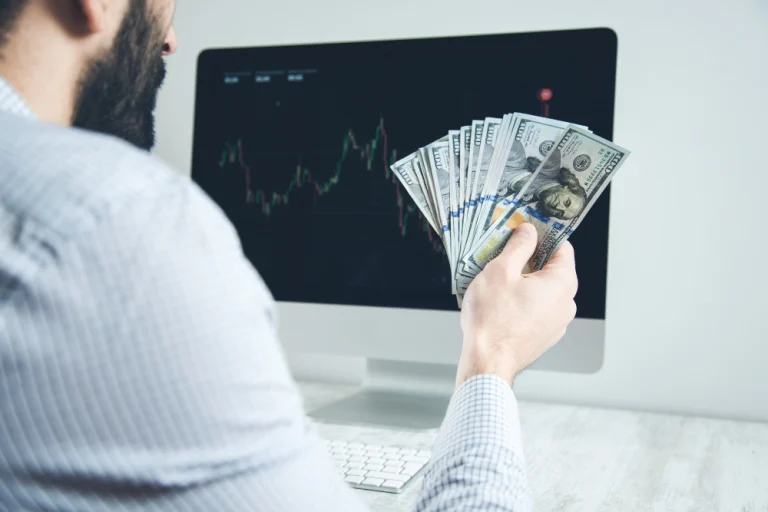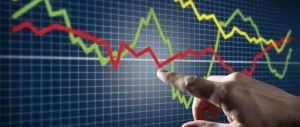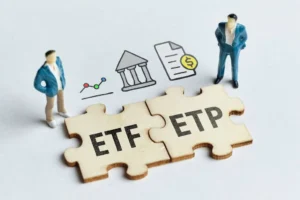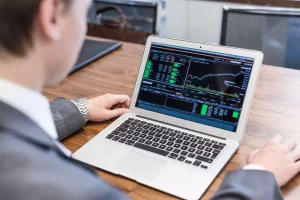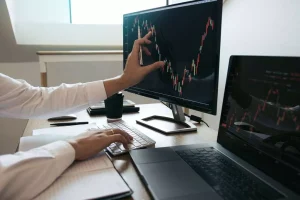Many adept traders from all around the world hear daily about fresh chances provided by proprietary trading. They are starting careers by purchasing and selling stocks, currency pairings, and virtual tokens since there are many brand-new methods to gain income. The public may access financial markets thanks to the prop business. These firms let people with trading expertise access the global market, democratizing it. It is a chance to get a steady income regardless of background or level of education. Let’s examine what is proprietary trading and its critical components in the post.
What Is Proprietary Trading?
Using a company’s internal shareholders’ equity to trade on the financial markets is referred to as proprietary trading. You’re not seeking outside funding in this situation. Moreover, it’s not the same thing as collaboration with a broker. The primary distinction is that Forex prop trading firms don’t rely on customer commissions but optimize profit on each sale. They trade stocks, bonds, derivatives, virtual tokens, and other assets to generate profit. Moreover, prop firms make long-term investments based on analyst conclusions. They sometimes keep holdings in futures or equities for a year or more.
Algorithmic or high-frequency trading is one of these companies’ operating strategies. With the aid of these strategies, they put different methods into practice while collaborating with traders, analysts, and programmers. It gives access to fresh insights, up-to-date market data, modeling, and trading tools to spruce up trading skills.
Working with these companies allows traders to earn from their investment and split it with the company they represent. These ventures also offer advice and help with strategies.
Finding arbitrage possibilities, performing fundamental research, and keeping an eye out for technical patterns in various assets are the most sought-after trading methods. Some even investigate out-of-the-ordinary techniques, such as fractal analysis, to find chances for various asset classes in the market.


Turnkey Brokerage Solution For Your Business
Get the most profitable fully licensed fx/crypto brokerage software or ready-to-operate business in 48 hours. Best-in-class web & mobile trading platforms, sales-driven CRM, full integration with MT4/5, and 150+ payment providers.
How Does Proprietary Trading Work?
Prop trading involves working with experienced traders inside the trading company. Generating a profit is a primary goal. You may get it by observing changes in financial tool prices, often emphasizing a particular market or asset. The capacity to create lucrative strategies is a prerequisite to each activity’s success.
It functions easily. As payment for their services, the trading firms give each prop expert funds and a cut of the profits. As an illustration, The5ers offers instant financing programs with potential growth of up to $4 million, while Lux Trading Firm offers funding to trader accounts up to $2.5 million. Prop traders get a portion of the profit, known as the “payout”. It varies widely from 25% to 80%, mainly based on the trader’s experience. Businesses may divide earnings 90:10, giving the trader just 10% of each efficacious transaction.
In the realm of prop trading, there is a prevailing principle. A more significant incentive percentage corresponds to more profitability. According to the policy, payments may be made once, twice, or four times a month or even instantaneously upon achieving a goal. To cover the losses of inexperienced traders before disbursing prizes, some businesses would instead withhold payment for a month.

Benefits of Proprietary Trading
Some experts believe that if you can benefit from a brokerage firm, collaborating with a prop venture is not justified. Nevertheless, prop trading offers some benefits that don’t come with using a broker. Proprietary organizations offer several positive points to help experts climb their trading career ladder:
- Capital availability. Prop traders often only make modest investments; the company’s assets are substantially larger. Traders cover the cost of the software connection, training, and the first charge.
- Earnings capacity. Traders may make more significant transactions and profit more when they can access more money.
- Availability of technology-packed trading. These include data streams, platforms, and analytical instruments that provide a competitive edge in the financial sector.
- Learn and put it into practice. Prop companies guarantee applicants receive high-quality training since they make considerable cash investments.
- Help and guidance. Specialized teams are available at prop businesses to assist novices.
- Possibility of employment and professional development. One way to advance professionally is to collaborate with a team of seasoned experts.
- Control of risks. High leverage is not a must for prop traders to make substantial gains. Companies also have risk management teams.
- Minimal fees and commissions. The ventures usually have cheaper trading fees than ordinary investors—a high turnover rate finds expression in lower commission charges.
Last but not least, the prop businesses provide a model that incorporates all parties. It factors into a more effective use of money as the trader and the company split gains and losses. The methodology protects experts who are inclined to engage in riskier transactions.
Prop Trading Regulations
Many companies and hedge funds came under fire for their role in the 2008 crisis during the Great Recession. The government reacted by enacting laws and measures to address future occurrences of the same kind of crisis.
The Volcker Rule is one example of such regulations. According to it, federally insured depository banks are subject to limitations under this law. It prevents people from utilizing their own money to engage in high-risk investments. It forbids these establishments from keeping private equity or hedge firm shares. Reinforcing the division of labor between commercial and investment banking dealings is a long-run objective.
Walker underlined the wide-ranging economic consequences of private trading, contending that banks have overexposed the consumer market to risk in their pursuit of profit maximization. By utilizing derivatives to diminish their exposure, many banking businesses that engaged in prop trading unintentionally increased their exposure to other industries. The Volcker Rule forbids private trading by banks covered by the FDIC. Some institutions have halted their trading entirely in response to the regulation, while others have split their trading activity from other operations.
An Example of a Prop Trading Desk
Experts searching for trading solutions might use proprietary trading desks. Here, funds are managed for institutional customers or include investors who start their trading businesses to get into the trading industry. A desk at a major investment bank might serve as an illustration. They employ a group of skilled traders. They make use of cutting-edge tools and research materials. Traders generate profits with the aid of statistical arbitrage and market creation. Sophisticated analytical instruments, real-time market info conduits, and software facilitate the procedures.
The desk has to cooperate with traders to handle different funds and register with the local financial authorities to function effectively in the market. They have access to many brokerage houses. It makes trade processing—a procedure with a high setup complexity—more straightforward.
Moreover, it occasionally serves as a market maker. When clients try to trade excessively illiquid or immense quantities of securities, they have the authority to step in. Because few counterparties are in the market, the desks function as purchasers or sellers and facilitate these deals.
To cap it all, prop trading organizations grant traders access to minimal commissions, profit-based rewards, training programs, and international financial markets. Novice traders can gain more knowledge and show what they can do within these platforms. Moreover, they don’t necessarily have to boast a college degree or have previously worked as an intern at a financial institution. Selecting regulated prop businesses with experience in the area is pivotal to improving the chances of success. Navigating the market requires knowing the prop trading basics, weighing its positive and negative sides, and adhering to the company’s procedures.
